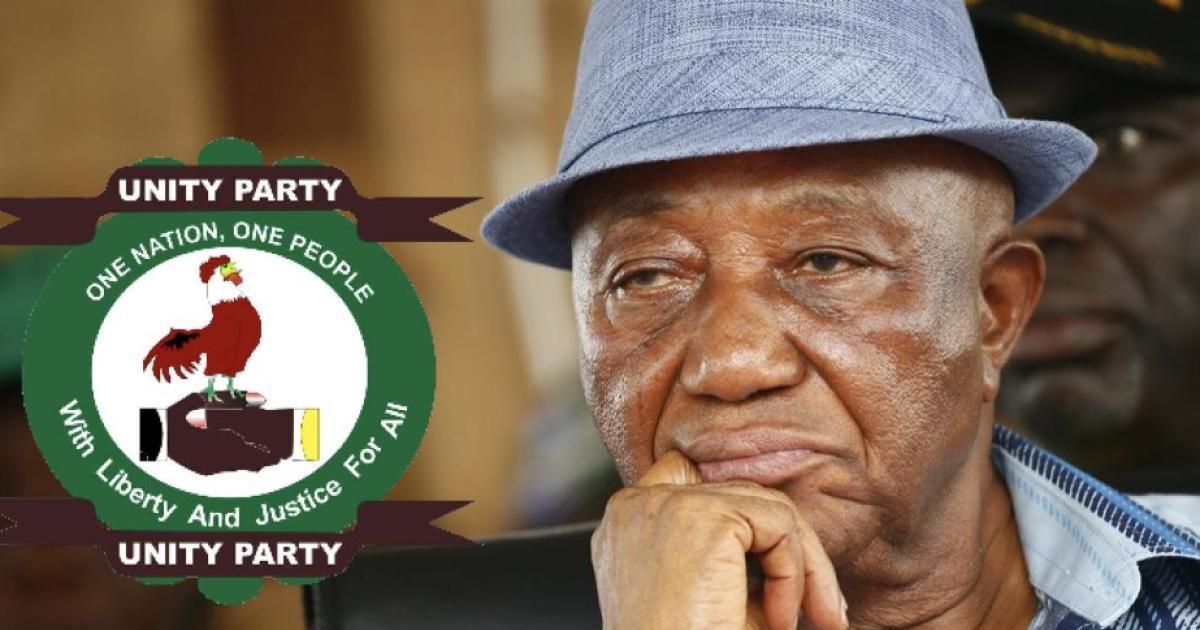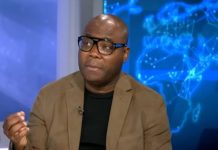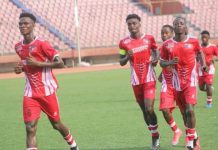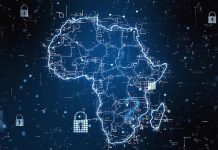LILIAN L. BEST,ROBIN DOPOE
Africa-Press – Liberia. Former Vice President Joseph N. Boakai must come forward and clarify his position on corruption and war crimes, given that he is receiving support from some of Liberia’s worst state plunderers and war criminals.
As the country’s leading opposition candidate, his silence on these issues is bound to erode his credibility in comparison to President George Manneh Weah, whom he accuses of being corrupt and unfit for office.
Boakai’s choice of a running mate, in the person of Nimba Senator Jeremiah Koung, raised some eyebrows given the latter’s apparently close affiliation with former warlord and fellow Senator of Nimba County, Prince Y. Johnson.
Johnson fought in Liberia’s civil war, in which he led the Independent National Patriotic Front for Liberia (INPFL), an offshoot of Charles Taylor’s forces, Johnson has since reinvented himself as a minister of the Gospel and a statesman. He won a nine-year Senate seat for Nimba County, in 2005, and was re-elected in 2014. His term ends in January 2024.
While Johnson’s atrocities are well documented, Koung is an unknown quantity. But corruption allegations levied against him, lend no weight to his claims of distance and independence from Johnson. And his as yet feeble attempts to clarify the nature of Johnson’s role in his political life give full reign to the chatter.
Boakai’s silence is even more telling. Once vocal on matters of corruption under the Weah administration, in his rare public appearances over the early six years of Weah’s term, he seems to have dropped the issue. Has he allowed his desire to win over Johnson’s base to outweigh his stance on the most pressing outstanding matters hanging over Liberia’s head?
The lure of Johnson’s influence, complemented by Koung’s, cannot be denied. Johnson has enjoyed a large following in Nimba, due to his reported defense of its people during the war.
As the county boasts the nation’s second-largest voting population at 308,421 registered voters, Johnson has leveraged his popularity to position himself as something of a kingmaker in the presidential field. Indeed, Boakai is neither the first nor the last presidential candidate to need and receive – if not to court – Johnson’s endorsement.
But Boakai has taken matters a step further in selecting Koung as his running mate and, in so doing, tacitly adding Johnson to the ticket. As a result, unintended consequences loom and seem to threaten the survival of the state.
To be sure, the involvement of some elements of wartime power structures in postwar politics is inevitably absent a definitive judgment on such figures as Johnson. Had former warlords and war financiers been held accountable, it might have eased the process of cleansing the nation’s political palate, to a degree.
But here we are and Weah, a novice to politics and governance, seems to have leaned heavily on the shadowy stalwarts of the Samuel K. Doe and Charles Taylor administrations to school him in the art of despotism.
Boakai claims to be different from Weah, in character, wisdom, and competency. Yet, he has reportedly enjoyed the patronage of noted Taylor ally, Benoni Urey, since 2018. Urey, former Commissioner of Maritime Affairs from 1996 to 2003, was on a long list of Taylor administration affiliates sanctioned by both the United Nations and the United States Government in 2000 and thereafter, for violent and nonviolent crimes during the civil conflict.
Urey, in particular, was sanctioned for arms dealing and for his continued association with Taylor. The UN and US sanctions were lifted in 2013 and 2015, respectively. Liberia’s Truth and Reconciliation Commission (TRC), in its final report, recommended Urey’s prosecution and that he be barred from holding elected office for 30 years. Urey has denied the allegations levied against him.
It, therefore, should come as no surprise, that Boakai would slide further down that slippery slope and plunge headlong into a morass of bloodstained affiliations.
But it is a surprise nonetheless. Urey, always the white-collar figure, has managed to maintain a genteel quality, all things considered. Notwithstanding the dark clouds looming over him, he is a businessman and a farmer, owning a stake in the nation’s largest cellphone network, MTN Lonestar.
He is no weapon-wielding Johnson. The latter can claim no distance from the bloodshed. Instead, his go-to tactic, when confronted with his alleged crimes, is to deflect and point fingers at Taylor and other warlords. He has not denied his role in the war.
Considering the circle of infamy surrounding the former Vice President, it seems fair to say that his oppositional candidacy is based on a hypocritical platform. Perhaps we must simply accept that fact and move on. But will the Liberian people?
Perhaps. While many staunch Boakai supporters – many clinging to tribal and party loyalties – have hailed his link with the Nimba Senatorial Caucus, others have maintained a cold and disapproving silence.
In some cases, dissent appears to be purely self-interested – such as radio personality Henry Costa, who reportedly expected to be tapped as Boakai’s running mate. But widespread distaste at this alliance with Koung and Johnson has not been lost in the national discourse.
In the absence of political polling so far, however, it is as yet unclear whether Boakai’s second crack at picking a running mate will prove as ruinous to his chances as it did in 2017. While he is clearly willing to overlook the sins of the past to win an election, do the Liberian people take a similar view?
Either way, Boakai’s choices raise questions about his commitment to fighting corruption and strengthening the rule of law in Liberia. In fact, they call into question the feasibility of his vision to combat both, even if he were committed.
Either way, Liberians cannot afford another government riddled with corruption and impunity. They deserve a government that is free of figures who have a vested interest in protecting war criminals and other predatory politicians.
While politics must make strange bedfellows, it is time for candidates to prove their loyalty to justice and the rule of law, rather than to their own ambition.
If Boakai wants to win and maintain the trust of the Liberian people, he must now present a clear roadmap for how his government would hold war criminals and corrupt officials accountable for their actions, regardless of whether they are supporting him or not.
Lest we forget, he at one point presented himself as the man who would stand up for the people and fight corruption as well as deliver justice to the victims of Liberia’s 14-year civil war by establishing a war crimes court. Changing of his tone – or falling silent – on these matters, just four months before the elections, is unacceptable.
The problem of public sector corruption has had a profound impact on national development. The longer it goes unaddressed, the more it will continue to impede progress. If Liberia is to succeed economically, politically, and socially, it needs a president who is willing to take the bull by the horns.
This is the same with the establishment of a war crimes court. The establishment of the Court as called for by the Truth and Reconciliation Commission more than a decade ago has failed to become a reality because the politicians who seek state power are always in bed with predatory politicians and warlords. Instead, the matter of the war crimes court remains a politically contentious issue – a can that gets kicked down the road every, six years.
These twin challenges, if left lingering, could push Liberia back over the precipice of civil conflict. Boakai could be the one to save us from that ugly fate. After all, among all other players in the field, he has the experience, knowledge, and skills to govern effectively and bring about positive change in Liberia. He has served his country with distinction for decades and has earned the respect and admiration of many Liberians.
But, in the final analysis, Boakai’s legacy hangs in the balance. Either he risks gaining the presidency and losing his own soul, or he risks losing the presidency and winning back the soul of the nation.
The latter will take the courage to stand up to his longstanding and newly acquired allies. He must, through his words and concrete action, send the signal that, when it comes to war crimes and corruption, enough is enough.
Source: Liberian Observer
For More News And Analysis About Liberia Follow Africa-Press






